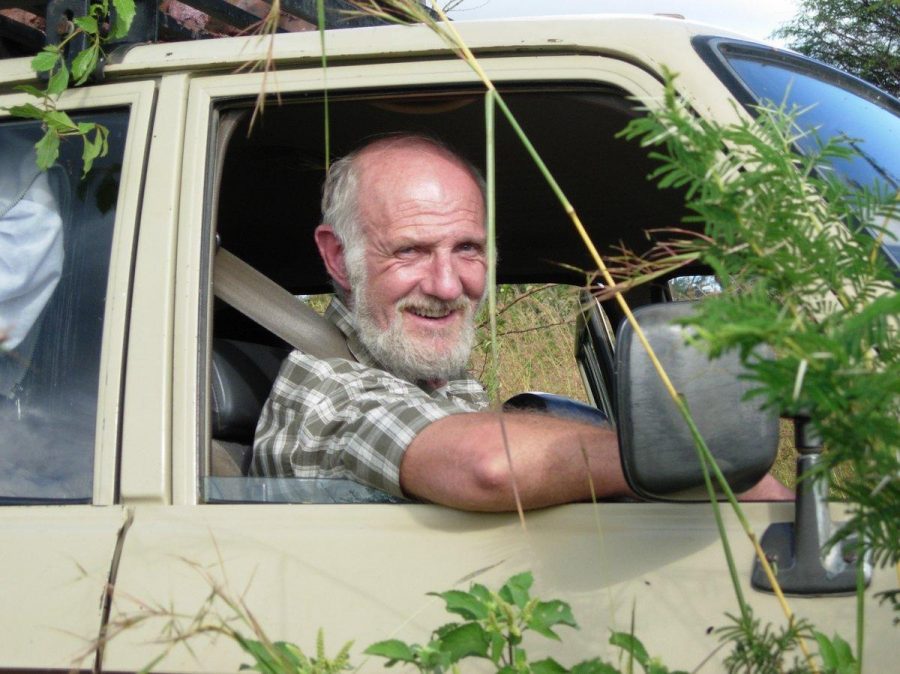Francis Brown, an award-winning researcher, distinguished professor of geology and geophysics and dean emeritus of the College of Mines and Earth Sciences at the University of Utah who was affectionately called Frank by his colleagues, passed away in Salt Lake City on Sept. 30 of heart failure. He was 73.
Staff in the administrative office for the geology and geophysics department said of Brown, chuckling, all you need to do is walk around the building to find people who knew and loved him.
“He really loved to get to know people,” said Erica Brown Gaddis, Brown’s daughter. “He was one of the most tolerant people I knew, in some ways. He really loved people from all over the world. The way that he interacted with people was often by trying to teach them something, but also trying to learn from them.”
Born in Willits, California, Brown was the oldest of four children growing up on a small family farm in Redwood Valley. Earning his bachelor’s and doctorate degrees from the University of California, Berkeley, Brown went on to marry Theresa Ann Brown in 1973, with whom he had two daughters. After their divorce, the two remained friends and played active roles in the lives of their children and their grandchildren.
Brown was brought on as faculty at the U in 1971. He served as chair of his department for three years, and Dean of the College of Mines and Earth Sciences for 25 years, all while teaching. He became the five-time departmental outstanding teaching award-winner in the span of two decades.
In 1981, Brown was named a member of Life magazine’s “ideal team to pursue the exploration of the past.” Brown was presented to Queen Elizabeth II in the opening of an exhibit on early man in 1985. He was also featured by National Geographic for playing a role in dating a fossilized boy at 1.5 million years old. In addition to his many professional accomplishments, in 2001 Brown won the Rosenblatt Prize, an outstanding professor award given by the U. With the $40,000 prize money, Brown didn’t buy a new car or go out to a fancy dinner — he donated it back to the U to help students pay for their education.
“Frank’s contribution to paleoanthropology and Paleolithic archaeology in Africa has been and is immense … some of the best in the 20th century,” anthropologist Desmond Clark of the University of California, Berkeley, told Continuum in 2002.
Brown spent his life analyzing sediments of the Turkana Basin in East Africa, which contributed greatly to uncovering the roots of human history.
He was always learning and constantly teaching. A few months ago, Brown’s 11-year-old grandson told his mother, Erica Brown Gaddis, “I can’t even walk to the car with grandpa without learning something.”
Brown had a stool next to his desk for students to sit while they worked and learned together, Erica recalled.
“It didn’t matter if you were a professor with a Ph.D., an undergraduate student or just someone interested in something, he always made time to work with people, talk to people, learn from people,” Erica said.
Brown’s son-in-law, Benjamin Gaddis, shared memories of inside jokes between Brown and his grandsons, including a Christmas rutabaga and a jar of pickles for his grandson Dylan.
“Family stories have on and off been a centerpiece at Thanksgiving dinners, especially since Grayson and Dylan were born,” Gaddis said. “Frank’s tales of his life in Kenya or his childhood in northern California — amongst other things — played the headline on many of those occasions, though they always had to be coaxed out of him. Frank was brilliant, generous, humorous, irreverent, kind, thoughtful and wise,” Gaddis said.
Many of those who knew Brown said he will be remembered not only for his work ethic that surpassed the average man, or his history-making discoveries but for the love he had for everyone he knew. A memorial service will be held Nov. 12 at the Natural History Museum of Utah.
“He was always at the University – he worked the equivalent of two full careers in his 50 years of teaching and research,” Erica said. “And yet, he always had time to talk — to help me, a student or colleague. And he regularly found time at the end of a long day to sit on his porch facing west, with a glass of red wine, watch the sunset over the Great Salt Lake, and engage in conversation with whoever was staying with him at the time.”
m.mcdermott@dailyutahchronicle.com
@kenzomcd


